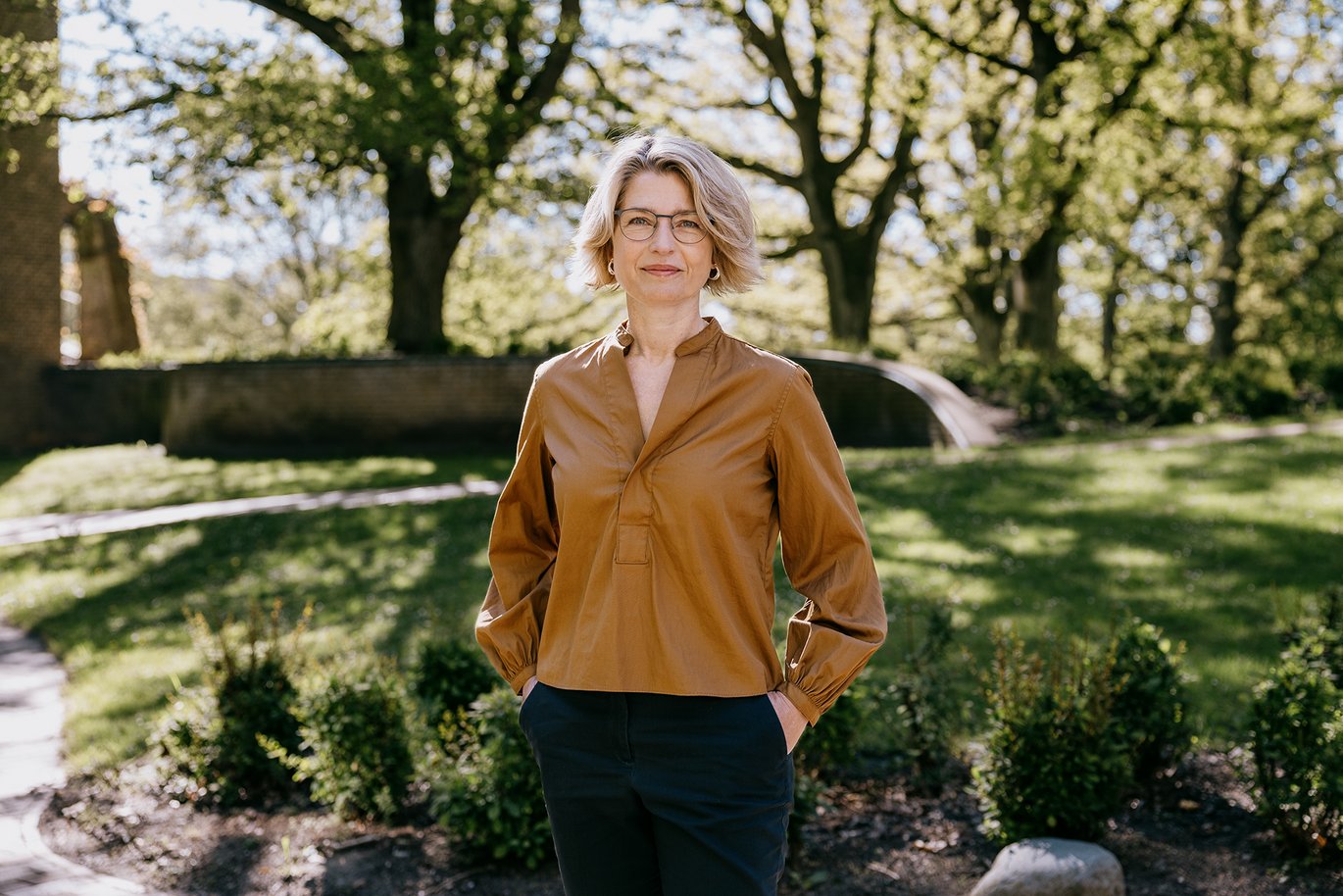COLUMN: When the challenges are great and complicated, many of the solutions will be found at the universities
If we fail to seize the opportunity to turn research into solutions for the future, we risk, at worst, missing the chance to make a meaningful contribution at a time when society needs us most, writes AU's Director of Enterprise and Innovation, Lone Ryg Olsen, in her column.

THE SENIOR MANAGEMENT TEAM COLUMN IN OMNIBUS
The nine members of the senior management team take it in turns to write the senior management team’s Omnibus column. The columnist chooses the topic, and all the opinions expressed in the piece are the columnist’s own.
The senior management team contributes content on the same terms as all other Omnibus authors of columns, articles or opinion pieces.
The views expressed in this column are the author’s own.
Would you like to join the debate?
- Send your content to omnibus@au.dk
When Professor Nikolaj Zinner immersed himself in theoretical quantum physics as a young researcher, he had no idea that he would be founding the company Kvantify together with Hans Henrik Knudsen and Allan Grønlund in 2022. Nor could he have known that the startup would soon have millions in investments, an office in Incuba at Katrinebjerg and collaboration with companies such as Novonesis, which explore the use of quantum technology to optimise enzyme development.
Kvantify is just one of many companies that have been founded on the basis of research from Aarhus University. A common thread among them is that they demonstrate that opportunities to turn research into future solutions are everywhere – even where we least expect them.
The point is that the world is changing extremely fast, and we do not yet know the exact needs of tomorrow.
The point is that the world is changing extremely fast, and we do not yet know the exact needs of tomorrow. Who, for instance, could have predicted just a year ago that Europe would be faced with an urgent need to strengthen its defences and guarantee its own security?
On the other hand, we know that when the challenges are great and complicated, many of the solutions will be found at the universities. This is especially true at a comprehensive university like ours, which, with its many disciplines, offers enormous opportunities to turn research into innovation.
We also know that the journey from idea to reality can be long, and for many researchers, it feels almost impossible. How do we ensure that more people like Nikolaj Zinner turn their research into solutions for society at a time when the need is immense?
From research to product
This challenge is not one that Aarhus University or Denmark faces alone. One of the challenges to Europe's competitiveness and sovereignty is that, although Europe holds a strong position in research, too few research results are turned into tangible products or solutions.
Although Europe holds a strong position in research, too few research results are turned into tangible products or solutions.
The first piece of good news is that this is something we can do something about. Both as an individual university and as a sector. We can offer better support to researchers who want to commercialise their results. We can recognise researchers' contributions to practical solutions by ensuring these efforts are reflected in hiring and promotion decisions. We can provide access to networks and funding.
Another piece of good news is that we are already well underway and that we are receiving help from multiple sources. For the second year in a row, the parties responsible for the distribution of the research reserve have set aside funds for the universities' innovation efforts. At Aarhus University, this creates opportunities to invest in interdisciplinary initiatives such as AU Launch, which provides financial support to emerging startups, and AU Connect, which supports researchers in strengthening their collaboration with companies and organisations. A platform like Open Innovation in Science, which has been successful in fostering more collaboration between researchers and companies, has also received support to develop the concept further, so that more environments at Aarhus University (and across the EU) can benefit from the opportunity.
There is also funding for a number of other initiatives, including building on the board's initiative, AU Distinguished Senior Innovators, with a Junior Innovator programme, so that more people can build bridges between the strong research and the concrete solutions.
AU receives less Proof of Concept funding than DTU and UCPH
Similarly, the EU is increasingly supporting entrepreneurship based on excellent research. An example is the European Research Council's Proof of Concept funds, which are allocated for the further development of ideas and opportunities that have emerged from an existing ERC project.
In 2023, two researchers from Aarhus University have received Proof of Concept funds. Professor Lasse Lindekilde from the Department of Political Science is enhancing the democratic debate online by developing new methods for moderating online dialogue. Meanwhile, Professor Sarang Dalal from the Department of Clinical Medicine is working on a new diagnostic method for eye clinics. Additionally, Professor Thomas Poulsen from the Department of Chemistry received funding in 2024 to test a new class of drug candidates with immunosuppressive effects.
These are good examples, and we need more of them, as Aarhus University receives fewer of this type of grant compared to DTU and the University of Copenhagen. This may be concerning in a time when the EU is under pressure, making new demands, and shifting its priorities.
At Aarhus University, we don't just risk losing a few euros. We risk missing out on new opportunities and unexplored horizons, both for the nuclear physicist and the social scientist. At worst, we risk missing the opportunity to contribute in new ways at a time when society needs us most.
This text is machine translated and post-edited by Cecillia Jensen.

